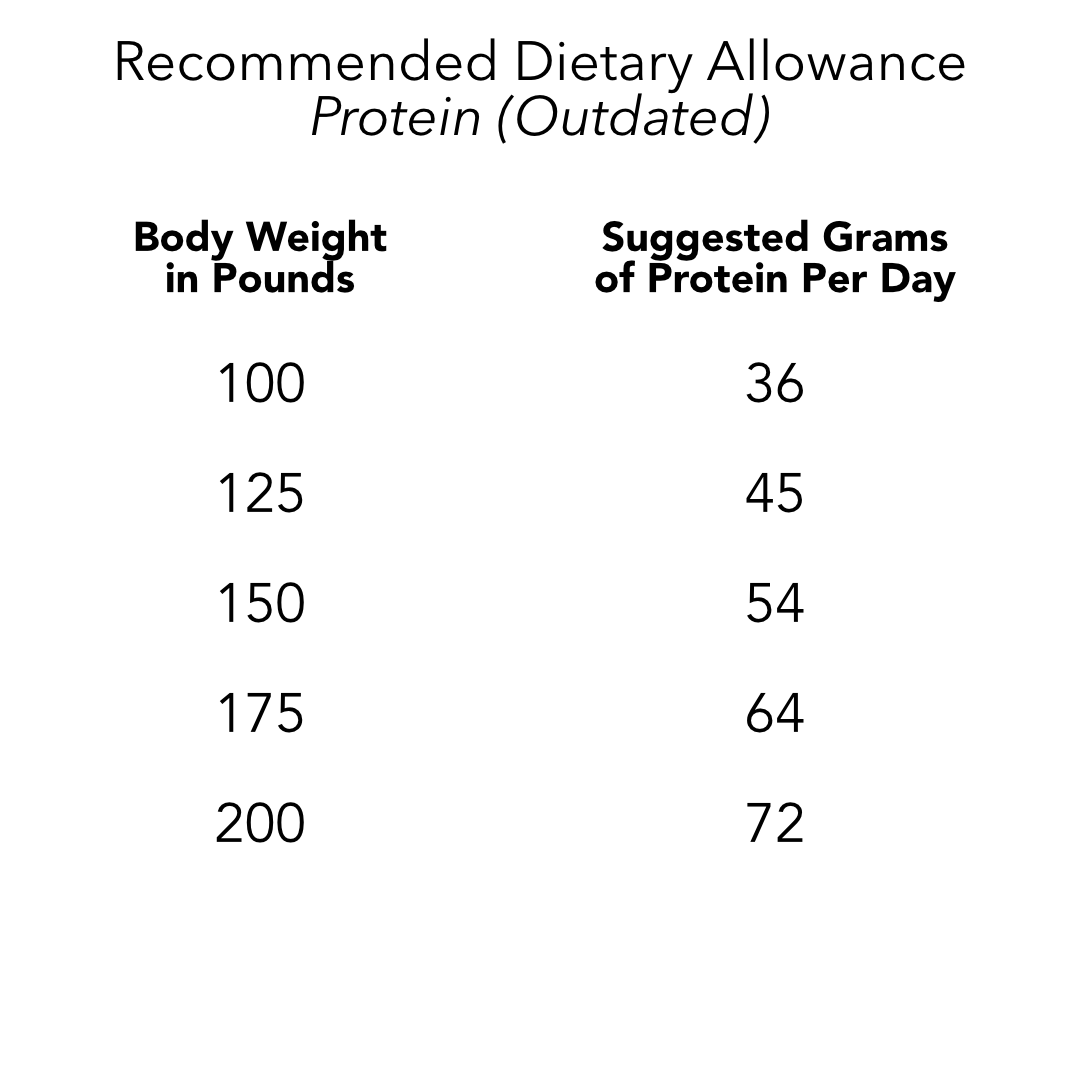How Much Protein Do I Need?
Food experts agree that protein is a vital nutrient we need in our diet. The Link between Dietary Protein Intake, Function and Health in Older Adults. What they don’t agree on is how much.
For decades nutritionists have spouted a single number: 0.8. Recommending that we consume 0.8 grams of protein per kilogram of body weight. For those of you not into the metric system this comes out to 0.36 grams of protein per pound of body weight.
Here’s a chart to make these figures more relatable.
Unfortunately, a whole bunch of us fail to achieve these recommended levels. Roughly 38% of men and 41% of women eat less protein than the RDA suggest.
This is not good. And the news gets worse. Many experts disagree with the RDA and suggest we should be getting a lot more protein.
How Much Protein Should We Be Getting?
What amount of protein do these experts say we should be getting? 1.2-2 grams of protein per kilogram of body weight. Roughly twice as much as the outdated recommendation. Again for the metrically challenged, this translates to a range between 0.54 to 0.91 grams per pound of body weight.
Here’s a chart with the updated recommendations.
The Bottom Line
The old recommendation of 0.8 grams per kilogram is outdated. (We will do a deep dive into how the RDA is outdated in a later post).
Instead, aim for 1.2-2 grams per kilogram of body weight daily. Rounding to simpler numbers and converting to pounds, that’s about 0.6 to 1 gram of protein per pound of body weight.
So, next time you plan a meal, think about adding a bit more protein. Your future self will thank you.
References
Baum, J. I., Kim, I. Y., & Wolfe, R. R. (2016). Protein Consumption and the Elderly: What Is the Optimal Level of Intake?. Nutrients, 8(6), 359. https://doi.org/10.3390/nu8060359
Hruby, A., Sahni, S., Bolster, D., & Jacques, P. F. (2020). Protein Intake and Functional Integrity in Aging: The Framingham Heart Study Offspring. The journals of gerontology. Series A, Biological sciences and medical sciences, 75(1), 123–130. https://doi.org/10.1093/gerona/gly201
Kitada, M., Ogura, Y., Monno, I., & Koya, D. (2019). The impact of dietary protein intake on longevity and metabolic health. EBioMedicine, 43, 632–640. https://doi.org/10.1016/j.ebiom.2019.04.005
Krok-Schoen, J. L., Archdeacon Price, A., Luo, M., Kelly, O. J., & Taylor, C. A. (2019). Low Dietary Protein Intakes and Associated Dietary Patterns and Functional Limitations in an Aging Population: A NHANES analysis. The journal of nutrition, health & aging, 23(4), 338–347. https://doi.org/10.1007/s12603-019-1174-1
Strasser, B., Volaklis, K., Fuchs, D., & Burtscher, M. (2018). Role of Dietary Protein and Muscular Fitness on Longevity and Aging. Aging and disease, 9(1), 119–132. https://doi.org/10.14336/AD.2017.0202


